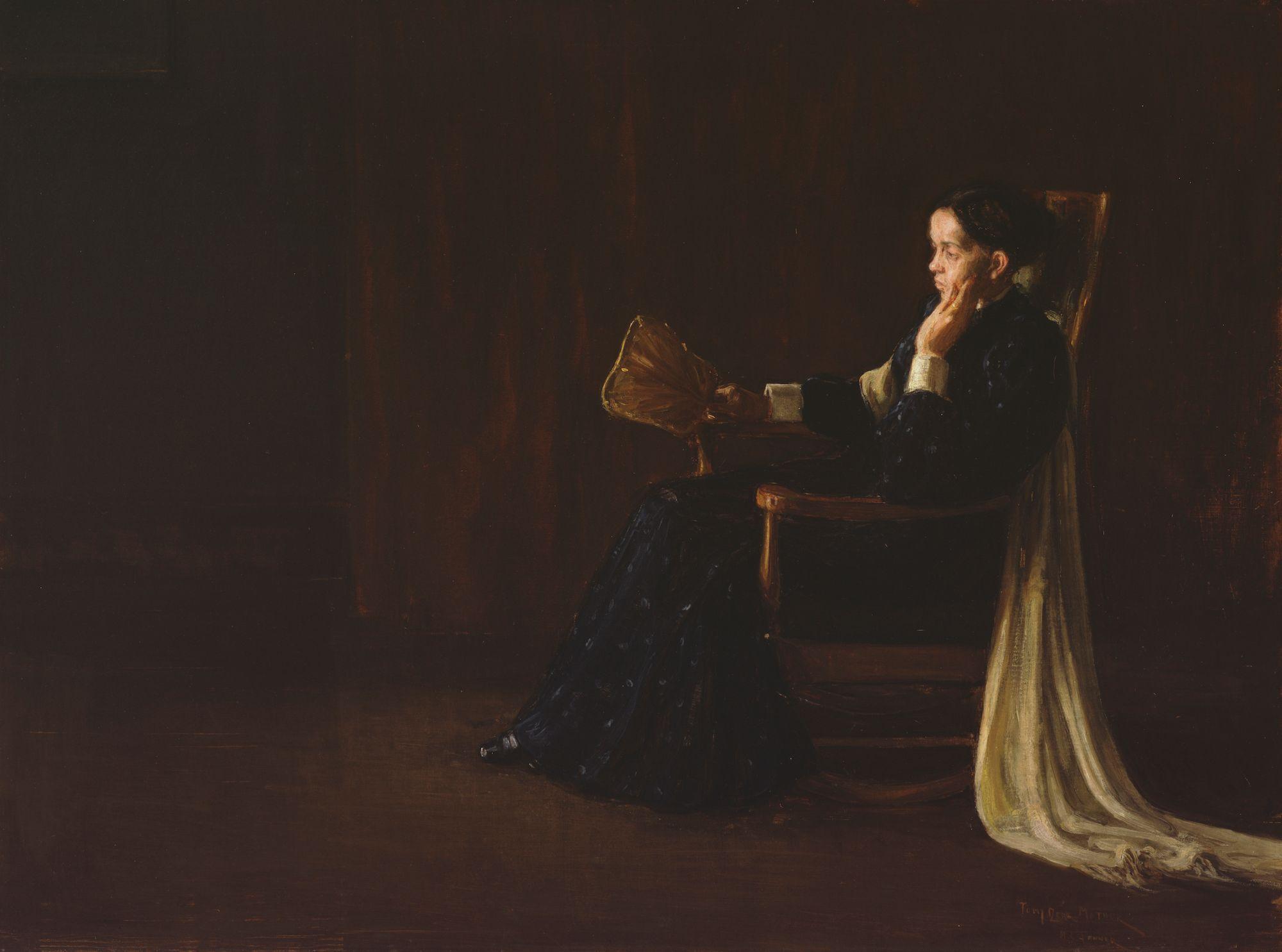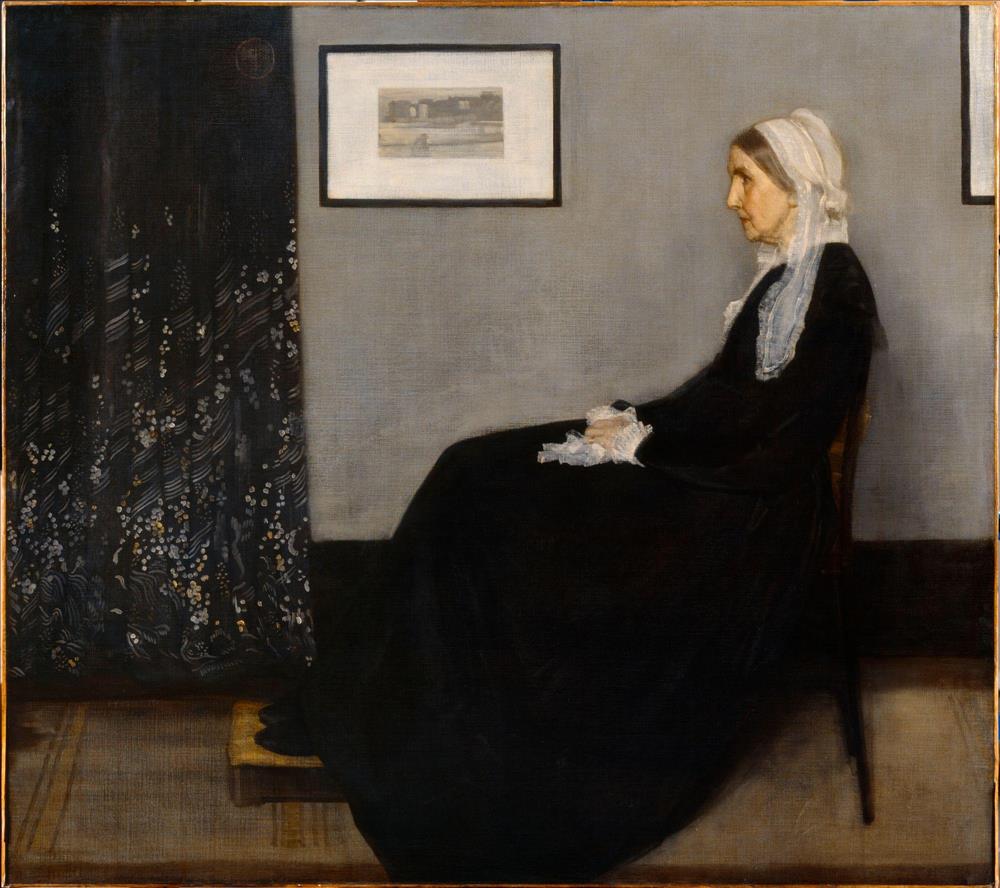(MENAFN- USA Art News) James Abbott McNeill Whistler's career-defining painting of his mother, Arrangement in Grey and Black No. 1 (1871)-widely known as“Whistler's Mother”-will return to Philadelphia this spring 142 years after it had its American debut in the city.
The work, on loan from the Musée d'Orsay in Paris, will be the centrepiece of the Philadelphia Art Museum's (PMA) group exhibition, The Artist's Mother: Whistler and Philadelphia, anchoring a suite of works that explore how artists such as Henry Ossawa Tanner, Cecilia Beaux, Sidney Goodman and Alice Neel conveyed their relationship with their mothers through their practices. Another highlight will be Francesco Novelli's 1792 copy of Rembrandt's etching of his mother, The Artist's Mother Seated, in an Oriental Headdress: Half Length (1631), which is believed to have inspired Whistler to experiment with the subject.

Cecilia Beaux, Les derniers jours d'enfance, 1883-85 Pennsylvania Academy of Fine Arts, Gift of Cecilia Drinker Saltonstall
Whistler's painting depicts the American-born artist's mother, Anna Mathilda, at his studio in London's Chelsea neighbourhood from the left profile, donning a long black dress and a white head wrap. Light emphasises the sitter's face and hands, in contrast to an overall muted palette. The artist's etching of the Thames River, Black Lion Wharf (1859), hangs on the wall behind his mother, while one of Whistler's kimonos covers the left corner of composition. The painting's global recognition, which has led some to dub the work“the American Mona Lisa”, is partially due to the woman's elusive expression and the mysteries surrounding the juxtaposition of elements in the composition.
“Motherhood is of course a very universal and human subject,” Jennifer Thompson, the PMA's curator of European painting and sculpture and the organiser of the exhibition, says. In contrast to the sentimental subject matter, the figure's demure, almost ghostly presence has perplexed viewers since the painting's unveiling in London in 1872.“There is a strong unknowingness about her, as if she was withholding some information from us.”
Whistler's matte brushstrokes lend a dream-like haziness to the painting's juxtaposed elements, an effect that is also partially due to the his decision to create the work on the back of an old canvas.“In our minds, the work is crisp and detailed, but in reality, the paint looks soaked into the canvas, which in a way represents the artist and the muse's relationship,” Thompson says.

Henry Ossawa Tanner, Portrait of the Artist's Mother, 1897 Philadelphia Museum of Art
Her decision to bring the painting to the city where Whistler briefly lived partially stemmed from the idea of pairing it with Tanner's Portrait of the Artist's Mother (1897), which is in the PMA's permanent collection. The show will also feature the etching depicted in the painting, from Whistler's Sixteen Etchings of Scenes on the Thames and Other Subjects series (1871).
The first and only sojourn of“Whistler's Mother” in Philadelphia-and its US debut-was in 1881 at the Pennsylvania Academy of the Fine Arts. It travelled across the US in the early 1930s as part of the Museum of Modern Art's exhibition 70 Years of American Painting and Sculpture. According to Thompson, the social and economic turmoil at the time helped fuel widespread admiration for the painting.“During the Great Depression, Whistler's presentation of his mother with dignity and pathos had a tremendous appeal in terms of its Americanness,” she says.“Its soothing familiarity made it a sensation at the time, so much that the image appeared on stamps.”
Mama's boy
Whistler's mother was a far more forceful influence on his life than the painting might suggest. In 1863, at age 59, she moved to the UK to flee the American Civil War and put her bohemian son's life in order.“She took control of Whistler's daily operations and began running the studio and even manage his sales,” Thompson says. After briefly providing the painting of his mother to his dealer as collateral for his debt, Whistler sold the work to the French government for the Louvre Museum's collection in 1891.
“I am hoping the immediately recognisable work will encourage viewers to move around the space and put Whistler back into context with his peers about how they approached their mothers,” Thompson adds.
The Artist's Mother: Whistler and Philadelphia, 10 June-29 October, Philadelphia Museum of Art





















Comments
No comment